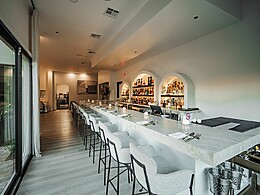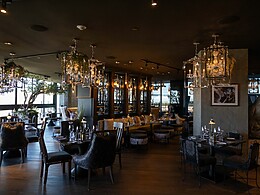
May 12 kicks off Food Allergy Awareness Week. What should you know about food allergies? Shandee Chernow, CEO and founder of Phoenix’s CertiStar, Inc., which is on a mission to protect and improve the safety and dining experiences of men, women or children vulnerable to food allergies and intolerances, gives us the lowdown.
1) Why is it important to acknowledge Food Allergy Awareness Week?
So many people don’t realize the number of people affected by food allergies. It’s a huge problem, affecting upwards of 10 percent of the population and yet societally, we are not particularly good at either feeding those people or showing much empathy for their day-to-day stress and situation. When people understand better, they care more.
2) We all know about nut and shellfish allergies. What are some of the more little-known food allergies?
There are more than 170 foods that have been known to cause food allergic reactions. Some of the common uncommon ones we hear most frequently are various meat allergies, sesame, corn, garlic, tomato, onion, avocado, citrus and strawberry. But you can have someone allergic to anything that’s ingested, and it’s important to recognize that an allergy to any food is potentially life threatening and not a made up preference.
3) How can those with allergies prepare themselves for dining out?
The best option is to choose a restaurant that uses complete, fact-based tools like CertiStar. That’s not always the case though, so you should call ahead and speak with the chef, if possible. Determining ahead of time what can be safely prepared and giving the restaurant the heads up that you’re on your way makes the dining experience a bit more seamless. Don’t ever guess at what is most likely to be safe and always make sure everyone you’re in contact with at the restaurant is aware of your allergies.
4) How can those hosting friends with food allergies be prepared?
Ask! It’s amazing to me how infrequently people ask guests if there are any dietary restrictions, and how infrequently people volunteer the information. Having the potentially awkward conversation about it certainly helps to avoid reactions during the dinner party. In small groups, avoiding the allergen on the menu all together is the best option (shellfish allergy? Don’t serve shrimp!) but ensuring that there are safe options for everyone isn’t as daunting as people think. With more than 170 different foods, focus on the things your guests can eat when menu planning.
5) How can restaurants making dining out easier for those with allergies?
Of course the best option is to use CertiStar’s services. It’s a lot of information for anyone on the staff to maintain in their heads – every ingredient of every item in every component on every dish. Having a technology solution prevents a lot of human error in that conversation. Training is important too – how to interact with food allergic guests, what questions to ask and what questions not to ask, how to prepare and serve those dishes, etc. A little empathy goes a long way, as does willingness to work with the guest to allow them to safely enjoy their dining experience.
6) What else would you like to share?
One of the things we hear time and again is how food allergic people don’t want to be a burden on other people. They tend to internalize it, and take on all of the stress, anxiety and burden upon themselves. It’s incredibly refreshing and heartwarming when someone is willing to get in that boat with you and grab an oar, when they want to make you something that’s safe and take the time to understand what you can have and what you can’t. I am so grateful to those people who really show they care about me in this way.










